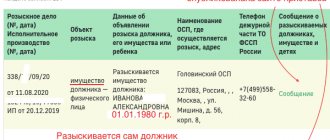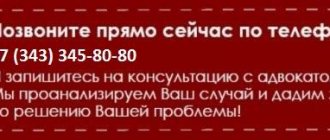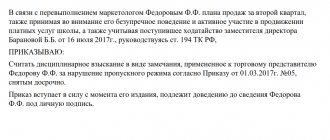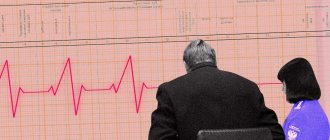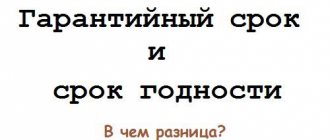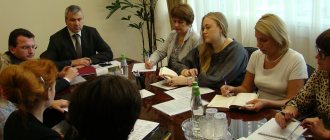Case N8-КГ17-3. On the collection of legal expenses.
Laws and codes » Civil Procedure Code of the Russian Federation » Section I. General provisions » Chapter 7. Legal costs » Article 96. Payment by the parties of amounts to be paid to witnesses, experts and specialists » Case N8-КГ17-3. On the collection of legal expenses. SUPREME COURT OF THE RUSSIAN FEDERATION
DEFINITION
dated June 13, 2021 N 8-KG17-3
Judicial Collegium for Civil Cases of the Supreme Court of the Russian Federation, consisting of
presiding Astashov S.V.,
judges Getman E.S., Maryina A.N.
considered in open court a case brought by the interregional public organization for the protection of consumer rights “Zabota” in the interests of I.V. Salkov. to the public joint-stock company "East Express Bank" on the protection of consumer rights on the cassation appeal of the interregional public organization for the protection of consumer rights "Zabota" against the appeal ruling of the judicial panel for civil cases of the Yaroslavl Regional Court dated November 7, 2021.
Having heard the report of the judge of the Supreme Court of the Russian Federation S.V. Astashov, Judicial Collegium for Civil Cases of the Supreme Court of the Russian Federation
installed:
interregional public organization for the protection of consumer rights “Zabota” went to court in the interests of I.V. Salkov. with a claim against PJSC "East Express Bank" for the protection of consumer rights, citing the fact that Salkov I.V. under the loan agreement concluded with the defendant, interest was paid in excess in the amount of RUB 25,051.17. The plaintiff asked to recover from the defendant unjust enrichment, as well as interest for the use of other people's funds, compensation for moral damage and a fine.
By absentee decision of the Tutaevsky City Court of the Yaroslavl Region dated March 25, 2021, the claim was partially satisfied in favor of I.V. Salkov. PJSC "East Express Bank" was charged with an amount of unjust enrichment in the amount of 25,051.17 rubles, interest for the use of other people's funds in the amount of 4,004.57 rubles, compensation for moral damage in the amount of 3,000 rubles, a fine in the amount of 8,013.93 rub. In favor of the interregional public organization for the protection of consumer rights “Zabota”, a fine in the amount of RUB 8,013.93 was collected from PJSC “East Express Bank”.
The bank filed an appeal against this decision, containing a calculation of the interest accrued under the agreement.
To verify the calculation of interest, the appellate court ordered an examination, the production of which was entrusted to the federal budgetary institution “Yaroslavl Forensic Laboratory”.
By the appeal ruling of the Judicial Collegium for Civil Cases of the Judicial Collegium for Civil Cases of the Yaroslavl Regional Court dated November 7, 2021, the decision of the trial court was changed in favor of I.V. Salkov. PJSC "East Express Bank" was charged with unjust enrichment in the amount of 13.73 rubles, interest for the use of other people's funds in the amount of 2.19 rubles, compensation for moral damage in the amount of 300 rubles, and a fine in the amount of 77.98 rubles. In favor of the interregional public organization for the protection of consumer rights “Zabota”, a fine of 77.98 rubles was collected from PJSC “East Express Bank”. In addition, in favor of the federal budgetary institution "Yaroslavl Forensic Laboratory" the costs of the examination were recovered: from PJSC "East Express Bank" - 15.40 rubles, from the interregional public organization for the protection of consumer rights "Zabota" - 27,984.60 rub.
By the ruling of the judge of the Supreme Court of the Russian Federation A.P. Kiselev dated May 5, 2021, the cassation appeal with the case was transferred for consideration at a court hearing of the Judicial Collegium for Civil Cases of the Supreme Court of the Russian Federation.
Having checked the case materials and discussed the arguments set out in the cassation appeal, the Judicial Collegium for Civil Cases of the Supreme Court of the Russian Federation finds the complaint to be satisfied.
According to Article 387 of the Civil Procedure Code of the Russian Federation, the grounds for canceling or changing court decisions in cassation are significant violations of substantive or procedural law that influenced the outcome of the case, without eliminating which it is impossible to restore and protect violated rights, freedoms and legitimate interests, as well as protection public interests protected by law.
Such violations of procedural law were committed when making an appeal ruling regarding the recovery of legal costs.
According to Article 96 of the Civil Procedure Code of the Russian Federation, amounts of money to be paid to witnesses, experts and specialists, or other expenses related to the consideration of the case, recognized by the court as necessary, are first deposited into an account opened in the manner established by the budget legislation of the Russian Federation, according to the Supreme Court of the Russian Federation Federation, the supreme court of the republic, the regional, regional court, the court of a federal city, the court of an autonomous region, the court of an autonomous district, the district (naval) military court, the administration of the Judicial Department in a constituent entity of the Russian Federation, as well as the body providing organizational support for the activities of justices of the peace, the party making the corresponding request. If this request is made by both parties, the required amounts are paid by the parties in equal parts (Part 1).
If the calling of witnesses, the appointment of experts, the involvement of specialists and other actions subject to payment are carried out on the initiative of the court, the corresponding costs are reimbursed from the federal budget (Part 2).
The court, as well as the magistrate, may exempt a citizen, taking into account his property status, from paying the expenses provided for in part one of this article, or reduce their amount. In this case, expenses are reimbursed from the corresponding budget (Part 3).
The return to the parties of unspent sums of money contributed by them towards the upcoming legal expenses is made on the basis of a court order. The procedure for returning unspent amounts of money to the parties is established by the Government of the Russian Federation (Part 4).
This norm, in its meaning, regulates relations regarding the preliminary deposit of funds for upcoming expenses.
Article 98 of the said code provides that the court awards the party in whose favor the decision is made to reimburse the other party for all legal expenses incurred in the case, except for the cases provided for in part two of Article 96 of this code. If the claim is partially satisfied, the legal costs specified in this article are awarded to the plaintiff in proportion to the amount of the claims satisfied by the court, and to the defendant in proportion to the part of the claims that were denied to the plaintiff (Part 1).
The rules set out in the first part of this article also apply to the distribution of legal costs incurred by the parties in connection with the conduct of the case in the appellate, cassation and supervisory authorities (part 2).
Thus, expenses in cases provided for in Part 2 of Article 96 of the Civil Procedure Code of the Russian Federation are borne by the court at the expense of the corresponding budget.
Reimbursement of such costs is regulated by Article 103 of the Civil Procedure Code of the Russian Federation, according to which the costs incurred by the court in connection with the consideration of the case, and the state duty, from the payment of which the plaintiff was exempted, are recovered from the defendant, who is not exempt from paying court costs, in proportion to the satisfied parts of the claims. In this case, the collected amounts are credited to the budget revenue from which they were reimbursed, and the state duty is credited to the corresponding budget in accordance with the deduction standards established by the budget legislation of the Russian Federation (Part 1).
If the claim is rejected, the costs incurred by the court in connection with the consideration of the case are recovered from the plaintiff, who is not exempt from paying court costs, into the budget from which they were reimbursed (Part 2).
If the claim is partially satisfied and the defendant is exempt from paying court costs, the costs incurred by the court in connection with the consideration of the case are recovered from the budget from which they were reimbursed from the plaintiff, who is not exempt from paying court costs, in proportion that part of the claim, the satisfaction of which was denied to him (part 3).
If both parties are exempt from paying court costs, the costs incurred by the court, as well as the magistrate in connection with the consideration of the case, are reimbursed from the appropriate budget (Part 4).
In the present case, claims for the recovery of unjust enrichment and interest for the use of other people's funds were stated in the amount of 29,055 rubles. 74 kopecks
The appellate court found that the bank had accrued excessive interest in the amount of 13 rubles for a year and a half. 73 kopecks, interest for the use of which is 2 rubles. 19 kopecks, in the rest of the property claims the claim was made unfounded. The amount of compensation for moral damage caused by the violation of the plaintiff’s property rights was determined to be 300 rubles, and a fine of 50% was calculated from the amounts collected.
In accordance with Article 34 of the Civil Procedure Code of the Russian Federation, persons participating in the case are the parties, third parties, the prosecutor, persons applying to the court for the protection of the rights, freedoms and legitimate interests of other persons or entering into the process in order to give an opinion on the grounds provided for in Articles 4, 46 and 47 of this code, applicants and other interested parties in cases of special proceedings.
By entrusting the interregional public organization for the protection of consumer rights “Zabota” with reimbursement of the costs of the examination, the appellate court did not take into account that this organization belongs to the persons specified in Article 46 of the said code who apply for the protection of the rights, freedoms and legitimate interests of other persons, and The plaintiff in the case is the citizen in whose interests the claim is brought.
According to Part 2 of Article 46 of the Civil Procedure Code of the Russian Federation, persons who filed an application in defense of the legitimate interests of other persons enjoy all procedural rights and bear all the procedural obligations of the plaintiff, with the exception of the right to conclude a settlement agreement and the obligation to pay court costs.
Under such circumstances, the Judicial Collegium for Civil Cases of the Supreme Court of the Russian Federation comes to the conclusion that the appellate court violated the above rule of procedural law, which exempts persons applying to protect the legitimate interests of other persons from the obligation to pay court costs.
The violations of procedural law committed by the court of appeal are significant and insurmountable, and therefore can only be corrected by canceling the appeal ruling of the judicial panel for civil cases of the Yaroslavl Regional Court dated November 7, 2021 regarding the distribution of legal costs with the direction of the case in this part for a new trial in the appellate court.
Based on the above and guided by Articles 387, 388, 390 of the Civil Procedure Code of the Russian Federation, the Judicial Collegium for Civil Cases of the Supreme Court of the Russian Federation
determined:
The appeal ruling of the Judicial Collegium for Civil Cases of the Yaroslavl Regional Court dated November 7, 2021 regarding the recovery of legal costs is cancelled, and the case in this part is sent for a new appeal consideration to the Judicial Collegium for Civil Cases of the Yaroslavl Regional Court.
Commentary on Article 96.8 of the RF Budget Code
1. Paragraph 1 of the commented article defines the concept of “oil and gas transfer”: part of the federal budget funds used to finance the non-oil and gas deficit of the federal budget from oil and gas revenues of the federal budget and funds from the Reserve Fund. Moreover, the Reserve Fund in accordance with clause 1 of Art. 96.9 of the Code is used to carry out oil and gas transfers only if oil and gas revenues are insufficient for these purposes. In accordance with paragraph 2 of Art. 199 of the Code, the volume of oil and gas transfers is one of the main characteristics of the federal budget.
2. In accordance with paragraph 2 of the commented article, the amount of oil and gas transfer for the corresponding financial year is subject to approval in absolute amounts by the federal law on the federal budget for the next financial year and planning period.
It was established that the absolute size of the oil and gas transfer for the financial year is calculated as 3.7% of GDP. In connection with this norm are the provisions of paragraph 2 of Art. 96.7 of the Code, according to which the non-oil and gas deficit of the federal budget cannot exceed 4.7% of GDP, and clause 3 of Art. 94 of the Code, according to which the total volume of sources of financing the federal budget deficit not related to the use of funds from the Reserve Fund cannot exceed 1% of the projected GDP.
As mentioned above (see commentary to Article 96.7 of the Code), the norms of paragraph 2 of the commented article and paragraph 2 of Art. 96.7 of the Code come into force only on January 1, 2011. Before this date, the volume of oil and gas transfer in accordance with Law of 2007 N 63-FZ is approved by the federal law on the federal budget for the next financial year and planning period in an amount not exceeding:
in 2008 - 6.1% of the GDP forecast for 2008;
in 2009 - 5.5% of the GDP forecast for 2009;
in 2010 - 4.5% of the GDP forecast for 2010.
In the explanatory note to the indicators of the draft Law on the Federal Budget for 2008 - 2010. it was indicated that the maximum annual transfer size of 3.7% of GDP allows, on the one hand, to maintain a fairly high and stable level of budget expenditures, even at low oil prices, and on the other hand, corresponds to the goal of creating the National Welfare Fund - ensures stability budget policy and allows you to maintain the Reserve Fund in case of sudden price changes, and in favorable scenarios, to accumulate funds in the National Welfare Fund. Taking this into account, it was proposed to fix the volume of oil and gas transfers in the amount of 3.7% of GDP for the long term, and in the “transition period” in 2008 - 2010. - with a decrease from 6.1% to 4.5% in proportion to the decrease in oil and gas revenues (see commentary to Article 96.6 of the Code) by about a quarter (from 6.8 to 5.2% of GDP). It is noted that maintaining a higher level of transfer (4.5% and 5% of GDP) for the long term leads to the fact that in the next ten years there will be a significant expenditure of previously accumulated funds, even at an average level of oil prices.
In accordance with the Federal Budget Law for 2008 - 2010. the volume of oil and gas transfer was approved for 2008 in the amount of 2135.0 billion rubles, for 2009 and 2010. — 2103.6 billion rubles. and 2021.0 billion rubles. respectively.


